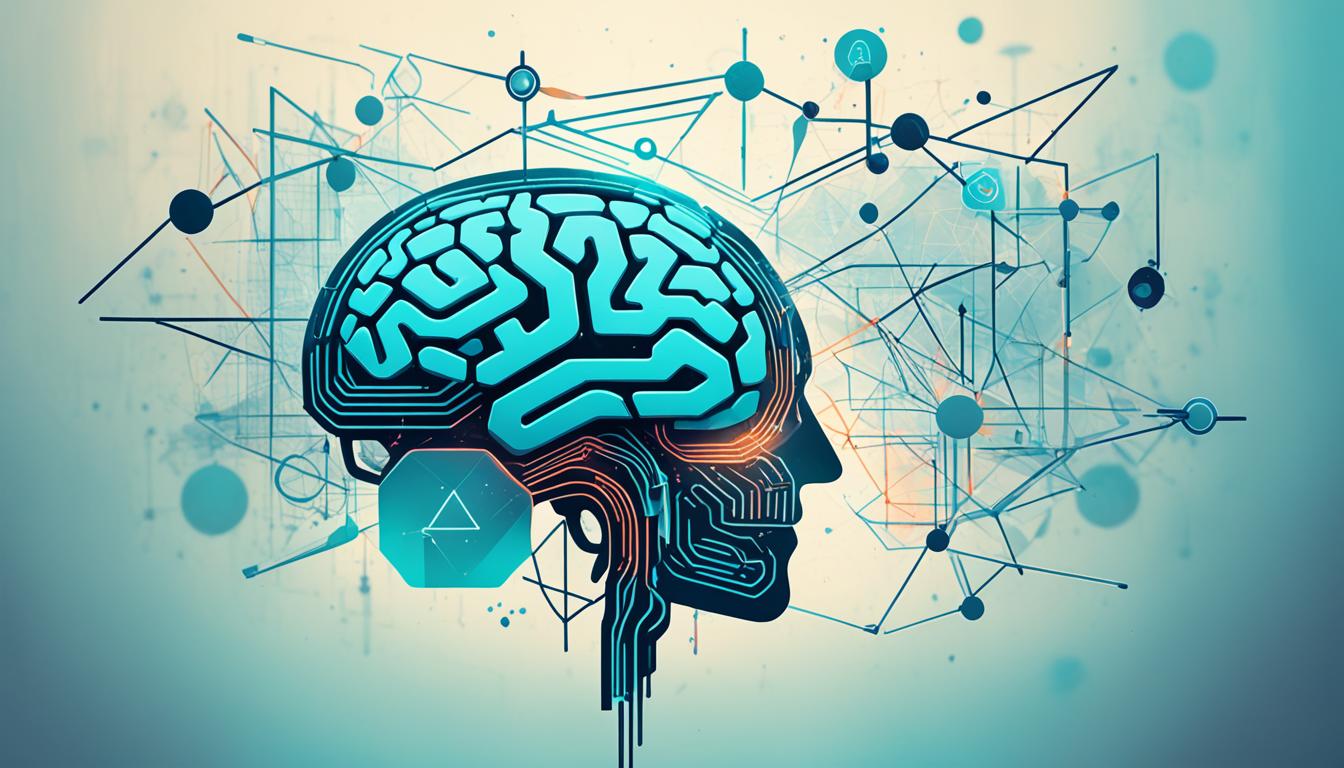
The healthcare industry is on the cusp of a remarkable transformation, with the integration of artificial intelligence (AI) poised to revolutionize the way mental health conditions are diagnosed and treated. As big data and machine learning continue to make their mark across various sectors, the potential applications of AI in the mental health space are truly exciting. From AI-powered mental health screening to machine learning for psychiatric disorder detection, the future of mental healthcare is set to be more efficient, personalized, and proactive.
AI tools are ready to support healthcare professionals with a wide range of tasks, from streamlining administrative workflows to enhancing clinical documentation and patient outreach. These intelligent systems can also provide specialized support in areas such as image analysis, medical device automation, and patient monitoring. The healthcare ecosystem has recognized the importance of AI-powered tools in the next generation of healthcare technology, with estimates indicating that AI applications could potentially cut annual U.S. healthcare costs by $150 billion by 2026 through a shift from a reactive to a proactive approach, focusing on health management rather than disease treatment.
Key Takeaways
- AI is poised to revolutionize mental health diagnosis and treatment by 2025
- AI tools can enhance healthcare professionals’ workflows and provide specialized support
- The healthcare industry is recognizing the importance of AI-powered tools in the future of healthcare
- AI applications could potentially cut annual U.S. healthcare costs by $150 billion by 2026
- AI is transforming the healthcare model from reactive to proactive, focusing on health management
Impact of AI on Mental Healthcare
The mental health space is growing exponentially, with a greater need for mental health experts. According to a report by Mental Health America, as of 2023, there is just one mental health expert for about 350 people in need, leading to experts not being able to help everyone in need. As a result, therapists are turning to AI-powered mental health screening and machine learning for psychiatric disorder detection to handle some of their existing workloads.
Cost Savings and Proactive Approach
AI can help reduce the cost of getting treated and ensure everyone in need gets help quickly. It is also expected to result in fewer hospitalizations, less doctor visits, and less treatments by changing the healthcare model from a reactive to a proactive approach, focusing on health management rather than disease treatment. This proactive approach of AI in mental healthcare can lead to significant cost savings.
AI-Associated Healthcare Market Growth
The AI-associated healthcare market is expected to grow rapidly and reach USD 6.6 billion by 2021 corresponding to a 40% compound annual growth rate. This growth is driven by the increasing adoption of predictive analytics in mental healthcare and the potential applications of AI in mental health diagnosis and treatment by 2025.
AI Applications in Mental Health
As the field of artificial intelligence (AI) continues to evolve, its potential applications in the realm of mental healthcare are becoming increasingly evident. From digital therapeutics (DTx) to virtual assistants and chatbots, and predictive analytics, AI is poised to transform the way we approach mental health diagnosis, treatment, and prevention.
Digital Therapeutics (DTx)
The digital therapeutics (DTx) industry represents a promising avenue for AI-driven mental health solutions. DTx leverages AI and other digital technologies to deliver evidence-based therapeutic interventions, aiming to treat, prevent, or manage mental health conditions. Experts predict that the DTx industry could be valued at a staggering $56 billion by 2025, underscoring the immense potential of this AI-powered approach to mental healthcare.
Virtual Assistants and Chatbots
Virtual assistants and chatbots, often referred to as therapy bots, are emerging as valuable AI-powered tools in the mental health space. These intelligent digital companions can interact with patients, gather relevant information, and help connect them with the appropriate mental health experts, making telemental health services more accessible and efficient. By streamlining the process, these AI-driven virtual assistants can enhance the overall patient experience and improve access to much-needed mental health support.
Predictive Analytics
The power of predictive analytics is also being harnessed in the field of mental healthcare. AI-driven predictive models can analyze vast troves of historical data to identify patterns and trends that may signal the onset of mental health conditions, such as addictions, depression, or anxiety. By leveraging these insights, healthcare providers can implement early intervention strategies and preventive treatments, potentially mitigating the severity of mental health issues before they escalate.

Promises and Challenges of AI in Mental Health
One of the most significant advantages of using artificial intelligence (AI) in the mental health space is the improved accuracy in mental health diagnosis. A recent study reported that the average accuracy of diagnosis using an AI tool was 72.52%, compared to 71.4% for human doctors. This enhanced precision can greatly benefit patients, ensuring they receive the appropriate treatment and support tailored to their specific needs.
Personalized Medicine
Personalized mental health treatment using AI can help take the guesswork out of drug doses and treatment options. By analyzing individual factors such as genetic information, physiological monitoring data, or electronic medical records (EMR) data, AI-enabled personalized treatment can optimize therapeutic interventions for each patient, improving outcomes and reducing the risk of adverse reactions.
Early Risk Assessment
Early risk assessment of mental health conditions using AI is another promising application. AI can analyze a vast amount of data to identify patterns and trends that may indicate the onset of mental health disorders, such as addictions, depression, or anxiety. This allows medical experts to create preventive solutions and interventions to mitigate the risk, promoting early detection and timely treatment.
Challenges and Biases
While the potential applications of AI in mental health diagnosis and treatment by 2025 are vast, there are also challenges and biases that need to be addressed. The effectiveness of AI in mental health diagnoses depends on multiple factors, and there are concerns around bias, transparency, and the ability of AI to capture the entire complexity of mental health conditions. Ensuring that AI systems are trained on diverse and representative datasets, and developing robust ethical frameworks, will be critical to realizing the full benefits of this technology in the mental health domain.
Conclusion
The potential of AI in mental healthcare is undoubtedly immense, with the ability to revolutionize how we approach diagnosis, treatment, and personalized care. As you’ve seen, AI-powered tools can take on initial therapy tasks, accelerate the speed of support, improve treatment efficiency, and deliver more tailored solutions for individuals.
While AI is not yet fully established in the mental health space, experts are confident in its extraordinary potential to address the growing need for mental health services. Particularly in the face of challenges like the shortage of mental health professionals, long wait times, and the surge of mental health issues exacerbated by the COVID-19 pandemic, AI is poised to play a transformative role.
As the technology continues to evolve and the challenges around bias, transparency, and capturing the complexity of mental health conditions are addressed, you can expect AI to improve access, accuracy, and personalization in mental healthcare by 2025 and beyond. The future of mental health treatment is undoubtedly bright, with AI leading the way towards a more proactive, efficient, and personalized approach to care.
FAQ
What are the potential applications of AI in mental health diagnosis and treatment by 2025?
AI is poised to play a transformative role in improving access, accuracy, and personalization in mental healthcare by 2025 and beyond. Potential applications include AI-powered mental health screening, machine learning for psychiatric disorder detection, AI therapy chatbots, AI-assisted psychotherapy, predictive analytics in mental healthcare, neural network models for treatment planning, AI-driven emotion recognition, and AI-enhanced cognitive behavioral therapy.
How can AI impact mental healthcare?
AI can help reduce the cost of getting treated and ensure everyone in need gets help quickly. It is expected to result in fewer hospitalizations, less doctor visits, and less treatments by changing the healthcare model from a reactive to a proactive approach, focusing on health management rather than disease treatment. The AI-associated healthcare market is expected to grow rapidly and reach USD 6.6 billion by 2021 corresponding to a 40% compound annual growth rate.
What are the key AI applications in mental health?
Key AI applications in mental health include digital therapeutics (DTx) to offer therapeutic interventions, virtual assistants and chatbots to interact with patients, and predictive analytics to analyze data and predict the onset of mental health conditions for early diagnosis and preventive treatments.
What are the promises and challenges of using AI in mental health?
The promises of AI in mental health include improved accuracy in diagnosis, personalized treatment, and early risk assessment. However, there are also challenges around bias, transparency, and the ability of AI to capture the entire complexity of mental health conditions.
